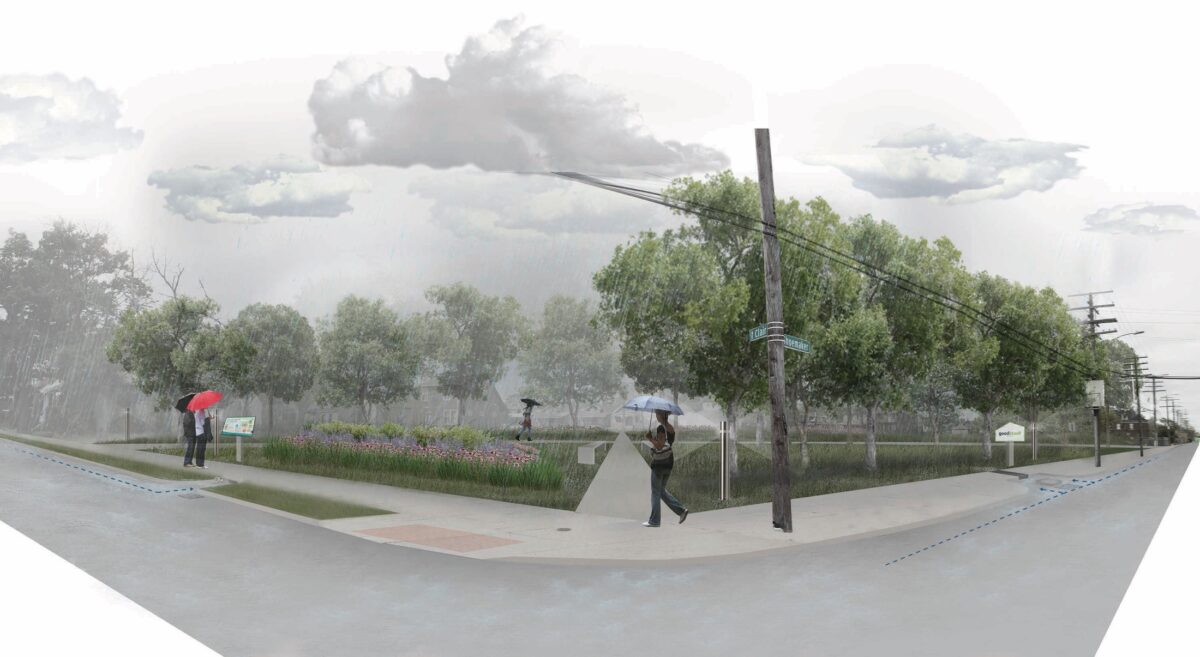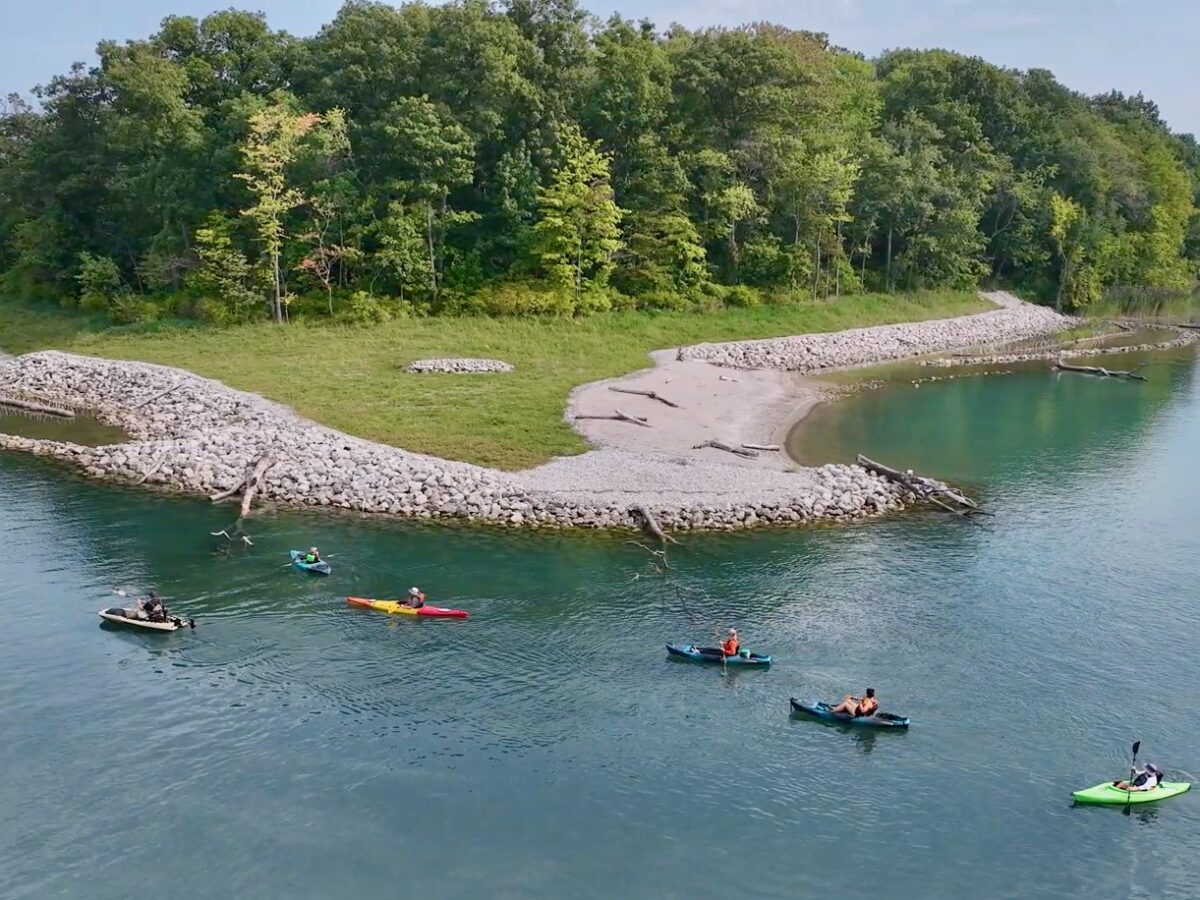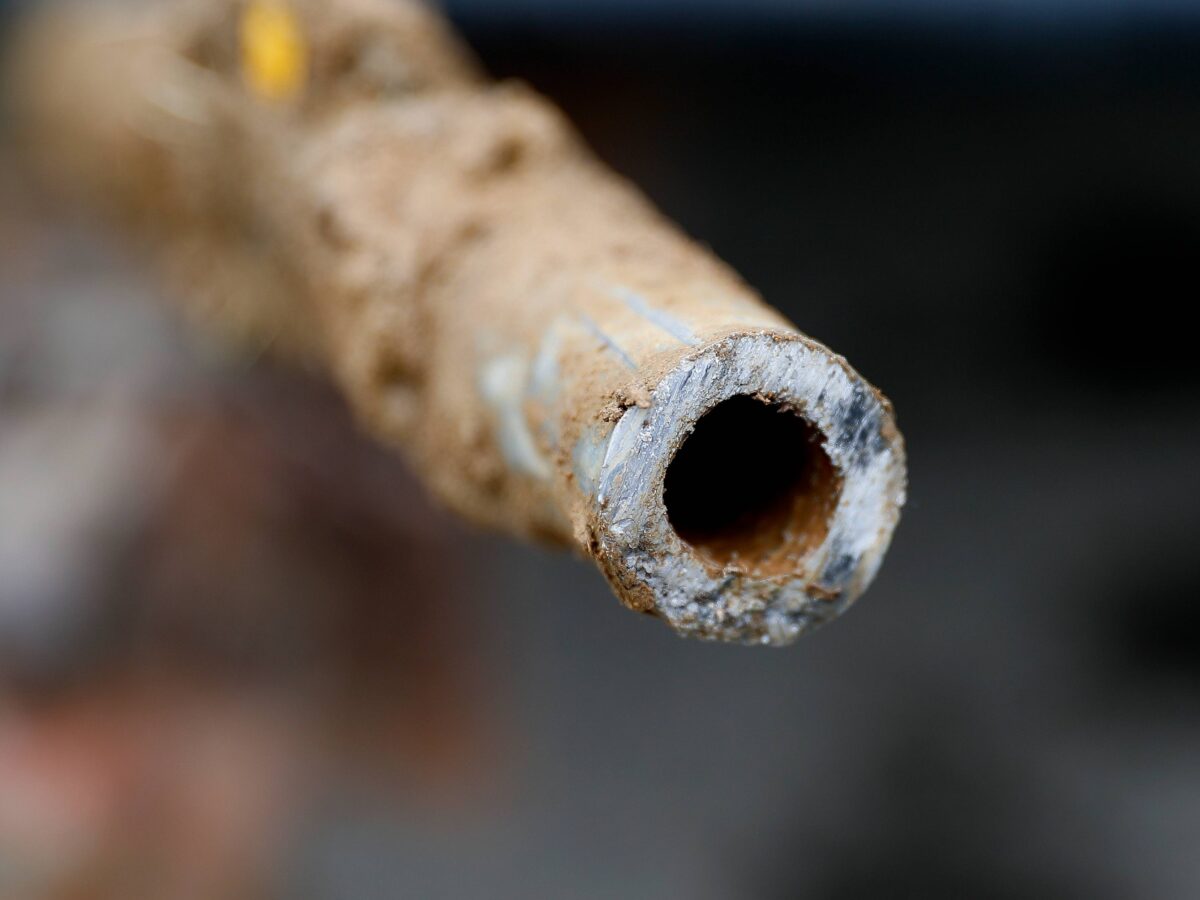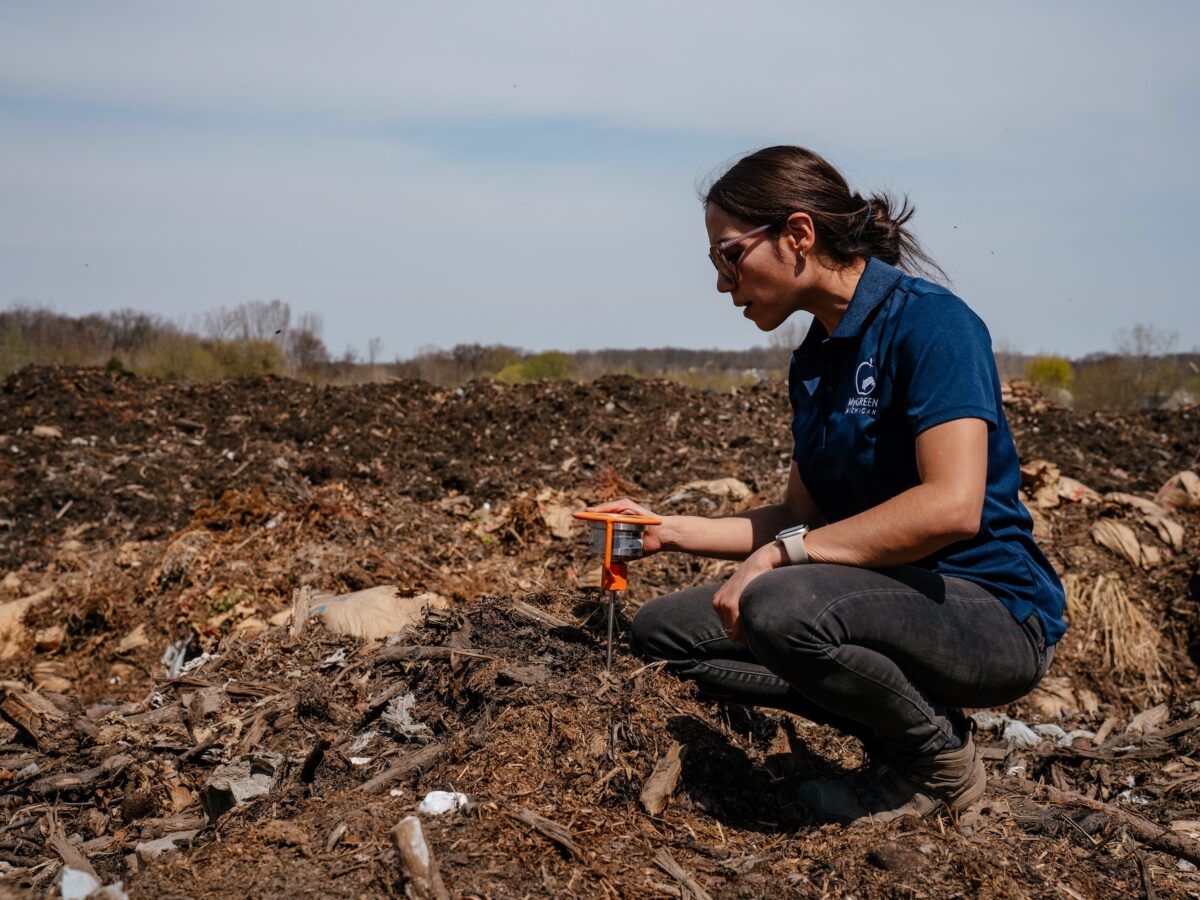Overview:
-Detroit is embracing community-driven climate adaptation strategies, says Ceara O'Leary.
-Initiatives like green stormwater infrastructure and resilience hubs are empowering residents to tackle climate emergencies.
-With federal resources disappearing, Detroit and other cities must take hyperlocal approach to climate, O'Leary says.
Detroit is facing extreme heat. Last month, it was unhealthy air quality due to wildfire smoke layered onto local pollution. Over the winter, an entire neighborhood suffered the effects of a cold snap coupled with severe water infrastructure failure.
In Detroit, we are constantly preparing for storms on both political and climate fronts as we weather increasingly devastating levels of rainfall amidst decades of disinvestment, overwhelming our infrastructure and flooding our basements and streets.
Additionally, forceful storms and extreme heat interact with heavy industry and outdated systems to exacerbate the financial and health impacts of weather emergencies, according to The New York Times. Here, as elsewhere, we see the strength of unanticipated storms impacting generations to come.
With the current presidential administration, those of us invested in community development and climate planning are already underwater from the impacts of a new era of scarce federal support as Trump’s team slashes funding, dismisses climate crises, and belittles communities most at risk.
In this critical absence of federal resources, which exacerbates preexisting inadequacies and insufficient oversight, Detroit and other American cities must embrace a hyperlocal approach to climate adaptation that supports neighborhood health and wellness.
Community-led strategies must drive neighborhood climate response, meeting immediate needs and in turn informing local policy measures and resource distribution.
Local expertise and resident networks are critical to climate response. I say this as a community-engaged architect and planner with years of experience addressing climate issues at the local level and working alongside residents to elevate community voices in the decision-making that impacts their neighborhoods.
Detroit stormwater project, resilience hubs highlight community climate response
In the last two decades, I have worked with community design practices in the Mississippi Gulf Coast, Lower Rio Grande Valley, and Detroit to design spaces and develop adaptive strategies that leverage local assets, respond to the environment, and prepare for the next storm.
These resident-driven design and planning solutions lead to more responsive, grounded and equitable climate action, which ought to inform top-down decisions tied to relief resources and infrastructure investment.
On Detroit’s east side, community leaders have envisioned green stormwater infrastructure that manages heavy rains via planted landscapes and meets multiple local needs including land stabilization and beautification as well as flood reduction tied to climate change and aging infrastructure. This work proposes an alternative to pricey underground water infrastructure while pushing for policy change that would enable community-level landscape solutions.
More recently, neighborhood organizations and resident leaders have launched a network of resilience hubs that serve Detroiters in times of climate emergency. The resilience hubs leverage social networks and a dispersed infrastructure of existing, trusted community spaces across the eastside.
Philanthropy and city staff committed to community sustainability are supporting and enabling these efforts. Simultaneously, community groups are urgently advocating for reliable regulation that will ensure healthy water, air, and infrastructure for the city’s next generation. Much of this work is led by the highly engaged and productive Eastside Community Network, and other allied groups.
MORE VOICES
VOICES: Environmental spending cuts threaten Detroit River cleanup momentum
The restoration of Sugar Island at Lake Erie’s mouth showcases the vital role of collaboration between local, state, and federal partners on environmental protection, says Friends of the Detroit River Executive Director Tricia Blicharski.
VOICES: Michigan must expand filter access to protect public health
In Michigan, efforts to replace lead pipes must prioritize access to tap water filters, write the Plastic Pollution Coalition’s Sofia Johansson and the Healthy Homes Coalition of West Michigan’s Victoria Patton.
Voices: Michigan has a big food waste challenge. Here’s a roadmap for change
Food waste is an environmental and economic failure. Here are some ideas for how Michigan can do better.
Both grassroots and policy solutions needed to weather climate change
Critically, social networks strengthen the local infrastructure that supports community resilience. The importance of social capital in disaster response is well documented as the single-most impactful element in recovery (see the work of Daniel Aldrich).
The community-led processes and spaces that are alive and well in Detroit reinforce place-based networks that build community connections. Along these lines, the MIT Healthy Neighborhoods Study emphasizes that “when it comes to building healthy communities it’s not just what is built, but the sense of power, control, and direct benefit that residents of those communities have over what is built that matters for health,” making the case for increased community input in planning for climate infrastructure for health outcomes at the local level.
Without a doubt, to meet increasing need and adequately support communities to prepare, adapt and respond to climate emergencies, solutions must operate at both the grassroots and policy level. Climate strategies must balance professional and community expertise and integrate infrastructure systems with fine-grained interventions.
Community networks with local knowledge and lived experience are best positioned to respond in times of crisis and are integral to local action that ought to drive policy decisions. And in the absence of climate leadership at the federal level under Trump, we must act locally, as poignantly called for by climate activist and author Ayana Elizabeth Johnson.
Community engagement in infrastructure planning and climate response that derives from the hyperlocal context is imperative to build equitable systems and policies that work.
Residents should not have to advocate to be heard, or for their own health and safety, as they seek to weather storms caused by climate change. The recognition of and support for community expertise and strategies will more effectively and equitably meet local needs during climate catastrophes and result in exponential and tangible benefits with citywide implications.
Planet Detroit’s Voices column includes opinion pieces from our community of partners and readers. These pieces express the voices of the authors and not necessarily those of the publication.





